Spring 2025 Lunch Lectures
View the Spring 2025 lecture schedule here >>
Scroll down to see our speaker/lecture information.

2024 Foley Scholar Award Winners - Research Presentations
April 17, 2025
12:00 p.m. Lunch; 12:30 p.m. talk starts
Location: TSRB 1st Floor Ballroom, 85 Fifth St NW, Atlanta, GA 30308
2024 Foley Scholar Award Winners (MS) Momin Siddiqui and (PhDs) Vanessa Oguamanam, Charles Ramey & Jiawei Zhou to present their research.
"Behavior and activity recognition systems for destructive users in harsh environments" - Charles Ramey
Abstract: The enhancement of animal well-being is a primary goal for animal caretakers. As an animal-centered computing practitioner, I aim to use digital technologies to extend the ability of caretakers to monitor the health of animals under their care and the effectiveness of the animals’ enrichment programs over time. Due to their users' unique behaviors and environments, however, these systems are subject to numerous design constraints. We must create each new system with a high level of physical ruggedness in mind to survive animal interactions while preserving the safety of our users. In this talk, I will present an ongoing project that utilizes two custom-designed instrumented enrichment objects to quantify animal interactions with the devices. I will address some of the key design constraints involved when creating the devices and present the results of a pilot study that compared the intensity and duration of animal-user interactions with the devices.
Short bio: Charles Ramey is a 5th year Computer Science Ph.D. Student advised by Professors Melody Jackson and Thad Starner. By utilizing his interdisciplinary skillset, Charles creates interactive computing systems for studying animal behavior, activities, and communications. During his nearly 14 years at Georgia Tech, Charles has been highly involved with makerspaces across campus, researched in three different labs (Precision Biosystems Lab, Planetary Habitability Lab, and Contextual Computing Group), and has spent over two years worth of time participating in field research.
"Contextualizing Writing Education for LLM Instigated Paradigm Shift" - Momin Siddiqui
Abstract: The ubiquity in generative AI through technologies like ChatGPT has led to growing concern among school personnel and parents. Students use these tools to do their homework for them, thereby circumventing crucial learning steps. Through this talk, I want to share how instead of rejected generative technologies in classroom, their thoughtful integration through tools like Script&Shift can support students to produce better writing while engaging in reflective processes.
Short bio: Momin Siddiqui is an MS CS student at Georgia Tech. His research is at the intersection of learning engineering and human-ai interaction. His paper was recently recognized as an honorable mention at CHI and he also has publications at learning science venues like AIED and Learning at Scale.
"Generative AI in Our Information Ecosystem: Assessing and Communicating the Risks" - Jiawei Zhou
Abstract: While technology has democratized information access, it also presents unique challenges for individuals in assessing information quality and reliability. These challenges have become more pronounced with the emergence of generative artificial intelligence (AI) technologies like large language models (LLMs), which can generate low-quality information — such as inaccurate or biased information — with high scalability and persuasiveness. Rather than approaching harm in a vacuum by measuring text alone, my research adopts a human-centered approach to understanding and contextualizing the perceived harms of using AI to meet informational needs. In this talk, I will first discuss what risks AI-generated information can bring, by presenting empirical evidence on its differences and challenges compared to human writing, as well as a risk taxonomy consolidated from professional and public voices. I will then share ongoing and future efforts to investigate how such risks are currently communicated, by characterizing the public discourse and investigating the effects of risk communication on public trust.
Short bio: Jiawei Zhou is a PhD student in Human-Centered Computing at Georgia Tech, advised by Munmun De Choudhury. Her research lies in Human-AI Interaction, Social Computing, and Health & Wellbeing, with an emphasis on the impacts of AI in the information ecosystem and high-stakes health domain. Her research has been published at premier computing venues like CHI, CSCW, UbiComp, and ACL, and has been recognized by a Best Paper Honorable Mention at CHI and the Foley Scholar Award. She works closely with experts in public health and informatics, mass communication, natural language processing, and psychology. Her research has made practical and policy implications through invited talks and workshops at the UK Government Department for Science, Innovation and Technology (DSIT), CSIRO Australian National Science Agency, Amazon, Mayo Clinic, and UT Southwestern Medical Center.
"Maternal Ease: A Tailored Approach to Supporting Perinatal Mental Health Through Digital Innovation" - Vanessa Oguamanam
Abstract: Perinatal mental health is a growing concern in the U.S., particularly for Black women who face higher rates of perinatal mood and anxiety disorders (PMADs) and chronic stress. Despite this reality, Black women reportedly use formal mental health support tools less frequently than their White counterparts due to barriers such as cost, access, and a lack of culturally competent resources. Digital platforms offer a promising solution to address these barriers. While the use of digital platforms for supporting perinatal mental health has been explored in HCI and CSCW, most evaluations focus on White and Asian women. My work addresses this gap by examining perinatal Black women’s use of, perspectives on, and engagement with digital platforms for managing stress and well-being. In this talk, I present empirical studies exploring how socio-cultural factors shape their preferences for digital mental health platforms. I will also discuss future directions for integrating a culturally tailored framework into digital mental health interventions aiming to improve engagement within this population.
Short bio: Vanessa Oguamanam is currently a Ph.D. candidate in Computer Science working in the Wellness Technology Lab under the supervision of Dr. Andrea Parker. She holds a M.S. in Human-Computer Interaction (HCI) and a B.S. in Computer Science from the University of Maryland, College Park. Vanessa’s research sits at the intersection of human-centered AI, digital health equity, and maternal mental health. Specifically, her dissertation focuses on the design, development, and evaluation of an AI-powered digital health tool tailored to support stress management in perinatal Black women. Her research trajectory has been shaped by her prior experiences conducting digital health research at the University of Maryland’s HCI Lab, Microsoft Research, and Google.

Ph.D. Dissertation Lightning Talks
April 10, 2025
12:00 p.m. Lunch; 12:30 p.m. talk starts
Location: TSRB 1st Floor Ballroom, 85 Fifth St NW, Atlanta, GA 30308
Six School of Interactive Computing PhD students will present 2025 Dissertation Lighting Talks. Presenters will discuss what their dissertation is about, methodology and what they are doing now, and what has been learned so far. The event will include talks by PhD candidates Adam Coscia, Qiao Zhang, Sichen Jin, Yao Dou, Jonathan Zheng, and Jin Yu.
1. Adam Coscia
Title: Visual Analytics for Trustworthy LLMs in Education
Short bio: Adam Coscia is a fifth-year PhD student in Human-Centered Computing advised by Alex Endert, whose research explores how visual analytics tools can help experts leverage and evaluate AI like LLMs for complex, data-driven tasks in critical domains including education, intelligence analysis, data science, and autonomous exploration of space and deep-sea environments. He engages in user-centered design with analysts, scientists, and engineers to create visual analytics interfaces that not only explain opaque AI behaviors, but also enhance workflow efficiency and domain experts' understanding of the data, revealing novel design implications for bridging cutting-edge AI, visual analytics, and interface design with practical, real-world applications.
2. Qiao Zhang
Title: Understanding Human AI Teaming in Gaming Environments
Short bio: Qiao Zhang is a fifth year PhD student in Computer Science advised by Dr. MacLellan, whose research lies in the intersection of Artificial Intelligence and Human Computer Interaction. Using multi-player cooperative games as environments, Qiao develop agents that can interact with human to understand human-AI teaming dynamics from the perspectives of communication, collaboration and adaptation.
3. Sichen Jin
Title: Visual Analytics for Spatial Social Network Mapping and Analysis
Short bio: Sichen Jin is a fourth-year CS Ph.D. student at Georgia Tech specializing in GIS, visual analytics, and human-computer interaction. Her research focuses on developing a visual analytic tool for exploring how underlying geography affects social ties.
4. Yao Dou
Title: Building Interactive and Personalized AI with User Simulators
Short bio: Yao Dou is a fourth year PhD student at Georgia Tech advised by Prof. Wei Xu. His current research interests lie in natural language processing (NLP), especially text generation, evaluation and online user privacy.
5. Jonathan Zheng
Title: Probabilistic Reasoning with LLMs for k-anonymity Estimation
Short bio: Jonathan Zheng is a second year PhD student at the Georgia Institute of Technology majoring in computer science. His current research interests lie in natural language processing, specifically in the learning and reasoning process of large language models.
6. Jin Yu
Title: Designing With, Not Just For: How In-Depth User Research Transforms Interaction Design
Short bio: Jin Yu is a fifth-year PhD student in human-centered computing, focusing on co-design, educational technology, and interactive systems to empower youth as active creators of future technologies. Her work bridges physical computing and digital platforms, developing toolkits that support hands-on learning, prototyping, and collaborative design.
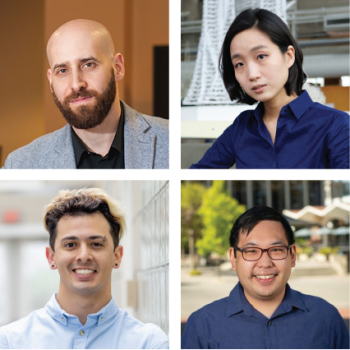
IPaT/GTRI Seed funding recipients will present their research projects.
April 3, 2025
12:00 p.m. Lunch; 12:30 p.m. talk starts
Location: TSRB 1st Floor Ballroom, 85 Fifth St NW, Atlanta, GA 30308
Proposal Title: Making Sustainability Data Public on the Georgia Tech Library Media Bridge Team Members: Yanni Loukissas, associate professor, School of Literature, Media and Communication; Emily Weigel, senior academic professional, School of Biological Sciences; Alison Valk, Jason Wright, and Charlie Bennett with the Georgia Tech Library; Steve Place, Jermaine Clonts, and Svetlana Sorok with the Georgia Tech Office of Sustainability. Research Overview: Our research idea is to study the social effects of fostering creative, public experiences with real-time, sustainability-related data on campus with the long-term goal of learning what a resource-conscious campus community might look like. Our approach will be to develop an interactive data visualization prototype for the Georgia Tech Library Media Bridge that will visualize real-time water use data in 47 student housing buildings. This visualization will serve as an adaptable research instrument through which to explore the potential for public experiences with data. It will challenge student residents to reflect on and take practical steps to change the environmental footprint of the places where they live. This research project is co-funded with Georgia Tech's Brook Byers Institute for Sustainable Systems.
Proposal title: Computational Design AI System to Empower Maker Educators
Team members: HyunJoo Oh, assistant professor, School of Industrial Design and School of Interactive Computing; Sehoon Ha, assistant professor, School of Interactive Computing; Sabrina Grossman, program director, Center for Education Integrating Science, Mathematics, and Computing at Georgia Tech. Research overview: The rise of design and fabrication tools like 3D printers and microcontrollers has expanded maker education from K-12 to higher education. However, access remains a challenge, especially for underprivileged youth. Teachers often struggle to lead maker-centered activities due to a lack of design and engineering expertise, which particularly affects students in low-resource districts where school activities may be their only exposure to creative learning. To address this, we propose developing a web-based AI system that empowers teachers to lead kinetic design and engineering projects. Through participatory design with experienced teachers, the system will assist with project design and offer customized instructional guidance by identifying challenging steps and potential recovery solutions and adapting content to meet teachers’ needs.
Proposal title: Democratizing Creative Agency Through Interactive Technologies and Music Education: Team members: Moeiini Reilly, research technologist, GTRI, and human-centered computing Ph.D. student with the School of Interactive Computing; Paul Brancato, research engineer, GTRI; Nicole Brancato, composer and music educator. Research overview: Artistic computing learning environments play a crucial role in promoting equity and inclusion in computing by offering diverse opportunities to learn computational thinking through culturally relevant programming. Despite advances in science, technology, engineering, art, and mathematics (STEAM) education, there remains a significant gap in understanding how learners interact with and design creatively in these constructionist settings, as well as how the materiality of computational artifacts influences learning processes, meaning-making, and creative agency. This research seeks to build a framework for centering social and cultural dimensions of artistic learning within computational environments augmented by low-cost, technology-enhanced music education.
Proposal Title: Fostering the Landscape of “Critical Computing” at Georgia Tech
Team Members: Richmond Wong, assistant professor, School of Literature, Media, and Communication; Heidi Biggs, assistant professor, School of Literature, Media, and Communication; Carl DiSalvo, professor, School of Interactive Computing; Betsy DiSalvo, professor, School of Interactive Computing. Research Overview: Critical computing interrogates the social values, normative orientations, and unintended consequences of computing applications, and it is quickly coming to occupy a central place in research and practice among Georgia Tech researchers and their larger research communities. We seek to build a transdisciplinary critical computing research community at Georgia Tech spanning computing, the social sciences, humanities, and related disciplines. Through a working group and symposium series, we will explore the methods, concepts, theories, history, funding, and evaluation of critical computing research. We will investigate approaches to critical computing research that foreground issues of social values and ethics, engage in just and equitable research approaches, explore new forms of communication and expression, and seek to pursue meaningful alternatives to the status quo.

Launching the Center for Human-AI-Robot Teaming (CHART): Aims, Overview, and Examples
March 27, 2025
12:00 p.m. Lunch; 12:30 p.m. talk starts
Location: TSRB 1st Floor Ballroom, 85 Fifth St NW, Atlanta, GA 30308
Speaker: Bruce N. Walker, professor in the School of Psychology and the School of Interactive Computing at Georgia Tech
Abstract: The new Center for Human-AI-Robot Teaming (CHART) at Georgia Tech is designed to unite researchers and innovators dedicated to advancing how humans, AI, and robotics work together; and to act as a catalyst for developing practical solutions to critical scientific and societal challenges. CHART will cultivate a collaborative ecosystem that brings together the brightest minds from academia and industry. The research conducted by CHART members will not only amplify the innovative work already underway but also adopt a comprehensive, transdisciplinary approach to tackle the complex challenges of this rapidly evolving field. Beyond leading innovative research, CHART is committed to promoting lifelong learning for current and future leaders in human-AI-robot teaming.
Founding Director Bruce Walker will introduce the aims and mission of CHART, and will discuss how designing, developing, and deploying collaborative human-technology systems requires a deep understanding of people, technologies with agency, and teams science. This positions CHART squarely at the intersection of IPaT and IRIM. Dr. Walker will also introduce some of the CHART members, who already hail from 5 Georgia Tech colleges and 17 different universities (plus our industry partnerships), spanning fields such as psychology, design, interactive computing, aerospace engineering, mechanical engineering, public policy, and business. CHART welcomes new members. Finally, Dr. Walker will share some examples of the exciting projects already underway by CHART teams. Domains range from transportation to healthcare to education to assistive technology.
Short bio: Bruce N. Walker is a professor in the School of Psychology and the School of Interactive Computing at Georgia Tech. His interdisciplinary Sonification Lab studies human-computer interaction issues in non-traditional contexts, like cockpits and vehicle displays. Research interests include sonification and auditory displays, driving, trust in automation, technology adoption, human-AI-robot teaming, navigation and wayfinding, creativity, VR/AR tools, and assistive technologies. Dr. Walker teaches Sensation and Perception, Engineering Psychology, Human-Computer Interaction, Research Methods, Auditory Interfaces, and Assistive Technology. He is a Past President of the International Community for Auditory Display (ICAD). Dr. Walker is Director of the Center for Human-AI-Robot Teaming (CHART) and the Center for Inclusive Climate Communications (CICC). He is on the Steering Committee for the Center for Research and Education in Navigation (CRANE). In addition to academic research leading to over 250 journal articles and proceedings, Walker has consulted for NASA, state and federal governments, private companies, and the military. Dr. Walker is also an active entrepreneur, founding startups and working on projects related to COVID diagnosis, skin cancer detection, mental health monitoring, gun safety, and digital olfaction.
Co-sponsored with:
* Institute for People and Technology (IPaT)
* Center for Human-AI-Robot Teaming (CHART)
* Institute for Robotics and Intelligent Machines (IRIM)
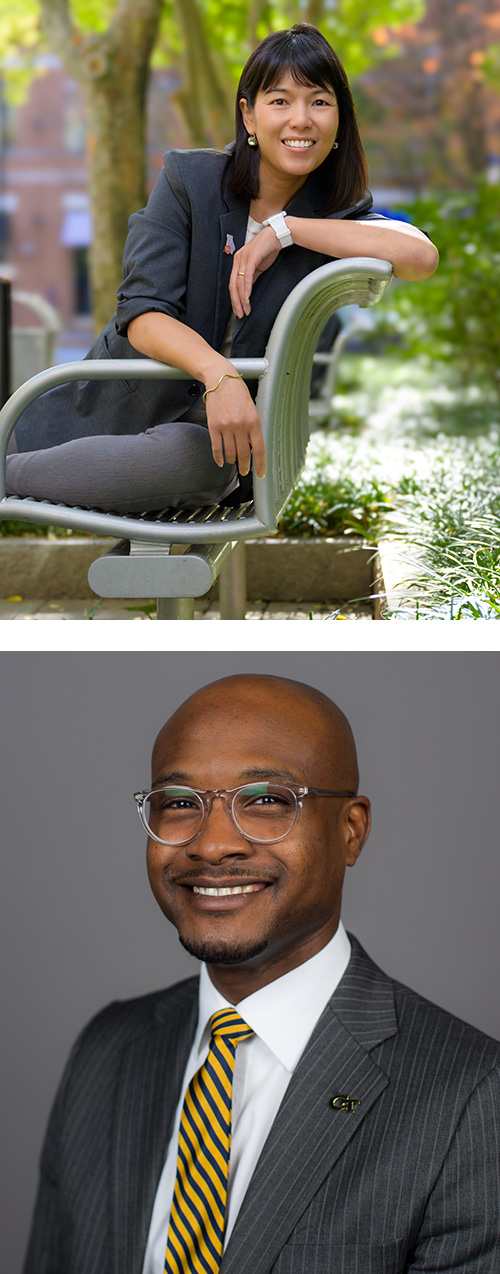
Next Generation Innovators: A Solution to Workforce Development and Research
March 13, 2025
12:00 p.m. Lunch; 12:30 p.m. talk starts
Location: TSRB 1st Floor Ballroom, 85 Fifth St NW, Atlanta, GA 30308
Speakers: Debra Lam, Founding Director of the Partnership for Inclusive Innovation, and Clarence Anthony, the inaugural Workforce Development Program Manager for the Partnership for Inclusive Innovation.
Abstract: Traditionally, research labs rely on, and benefits from, the work of undegraduate and graduate research assistants and visiting reseachers/scholars, with many being on track for the professoriate. However, higher education can benefit from engaging in increased opportunities that develop talent pools that are fluent in, and capable in building, public-private partnerships. This session will showcase how the Partnership for Inclusive Innovation’s Fellowship and Internship programs has leveraged early career talent to bolster research and economic development activities.
Bios:
Debra Lam is the Founding Director of the Partnership for Inclusive Innovation, a statewide public-private partnership committed to investing in innovative solutions for shared economic prosperity. She continues to lead smart communities and urban innovation work at Georgia Tech. Prior to this, she served as Pittsburgh’s inaugural Chief of Innovation & Performance where she oversaw all technology, sustainability, performance, and innovation functions of city government. Before that, she was a management consultant at a global engineering and design firm, Arup. She has received various awards, including being named one of the top 100 most influential people in digital government by Apolitcal. She has worked and lived in the United Kingdom, China, Taiwan, and Hong Kong. A graduate of Georgetown University and the University of California, Berkeley, Debra serves on the board of the Community Foundation of Greater Atlanta and was most recently appointed by the U.S Department of Commerce to the Internet of Things Advisory Board.
Clarence Anthony Jr. is the inaugural Workforce Development Program Manager for the Partnership for Inclusive Innovation. His goal is to develop initiatives that engage current and emerging talent in capitalizing on their strengths and developing new skills to build a strong workforce within the Southeast region. Clarence has 12 years of experience in higher education, working in career services and student affairs. Prior to joining the partnership, he worked at the Georgia Tech Career Center, University of Michigan, and University of Florida Career Centers serving student-athletes, first-generation and low-income college students, and graduate students. Clarence holds a Bachelor of Arts in sociology from the University of Florida, a Master of Arts in psychological counseling from Columbia University, a Doctor of Philosophy in counseling and counselor education from the University of Florida, and a Master of Business Administration program at the Georgia Institute of Technology.
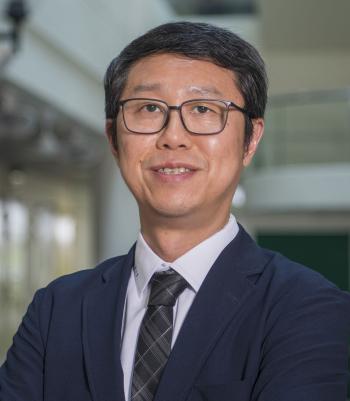
Working-Class Network Society Reconsidered: From the Information Have-Less to DeepSeek
March 6, 2025
12:00 p.m. Lunch; 12:30 p.m. talk starts
Location: TSRB 1st Floor Ballroom, 85 Fifth St NW, Atlanta, GA 30308
Speaker: Jack Qiu, Chair and Shaw Foundation Professor of Media Technology, Wee Kim Wee School of Communication and Information, Nanyang Technological University, Singapore.
Abstract: Is DeepSeek a fundamentally new disruptor? Probably not, if we revisit arguments from the 2009 book Working-Class Network Society: Communication Technology and the Information Have-Less in Urban China. If we understand key concepts concerning the information have-less, e.g., existential informational needs, social innovation, and network labor, while updating them in the current era of AI. Processes of economic and social transformation continue to shape class and class consciousness, although seismic shifts are taking place in the realms of globalization, urbanization, and industrialization. Today’s working-class network society has become more pervasive, more polarized, and more ephemeral. But openings for change persist, in China, Asia and the Global South.
Bio: Dr. Jack Linchuan Qiu is Chair and Shaw Foundation Professor of Media Technology at the Wee Kim Wee School of Communication and Information, Nanyang Technological University, Singapore. He has published more than 130 research articles and chapters and 11 books in English and Chinese including Goodbye iSlave: A Manifesto for Digital Abolition (University of Illinois P, 2016), World Factory in the Information Age (Guangxi Normal University Press, 2013), Working-Class Network Society (MIT Press, 2009), and co-authored book Mobile Communication and Society (MIT Press, 2005). He is a recipient of the C. Edwin Baker Award for the Advancement of Scholarship on Media, Markets and Democracy, and an elected Fellow of the International Communication Association (ICA).
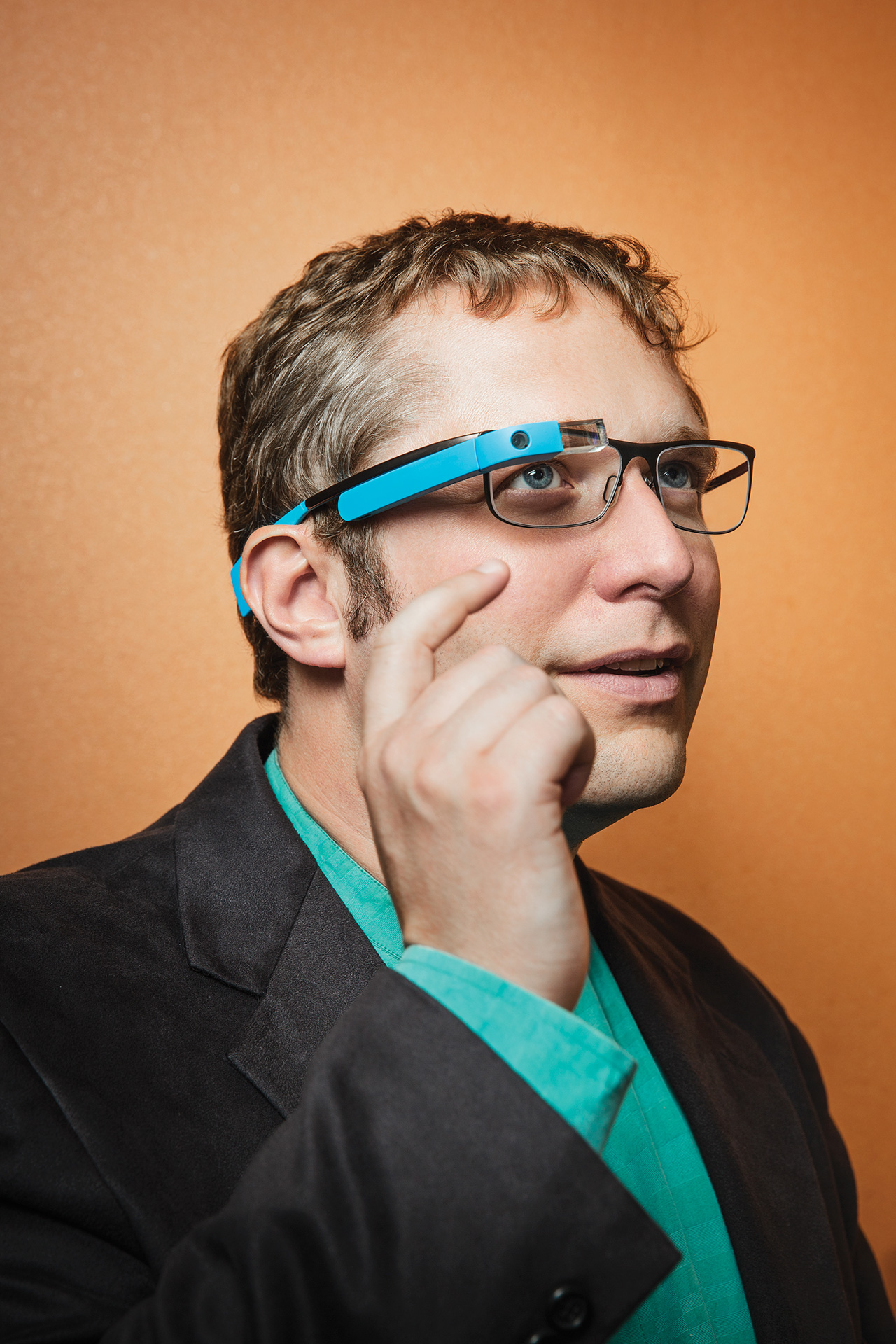
Mobile Sign Language Recognition: Creating Useful and Usable Interfaces for the Deaf
February 20, 2025
12:00 p.m. Lunch; 12:30 p.m. talk starts
Location: TSRB 1st Floor Ballroom, 85 Fifth St NW, Atlanta, GA 30308
Speaker: Thad Starner, Professor, School of Interactive Computing, College of Computing
Abstract: The Oscar best picture winning movie CODA has helped introduce Deaf culture to many in the hearing community. The capital "D" in Deaf is used when referring to the Deaf culture, whereas small "d" deaf refers to the medical condition. In the Deaf community, sign language is used to communicate, and sign has a rich history in film, the arts, and education. Learning about the Deaf culture in the United States and the importance of American Sign Language in that culture has been key to choosing projects that are useful and usable for the Deaf. This talk will review 30 years of effort in sign language recognition and working with the Deaf community and will feature several upcoming products such as PopSignAI, a smartphone game that helps hearing parents of Deaf infants learn sign language.
Bio: Thad Starner is a Georgia Tech Professor and a wearable computing pioneer. In 1990, Starner coined the term "augmented reality" to describe the types of interfaces he envisioned for the future. In 1997, Thad was a founder of the annual ACM International Symposium on Wearable Computers (ISWC), now in its 28th year. From 2010-2018 Dr. Starner was a Technical Lead on Google's Glass, which was named a "50 Most Influential Gadget of All Time" by Time Magazine. Professor Starner has been inducted into the CHI Academy in 2017 and AWE's XR Hall of Fame in 2024. He has over 100 issued United States utility patents on wearables, artificial intelligence and interfaces.
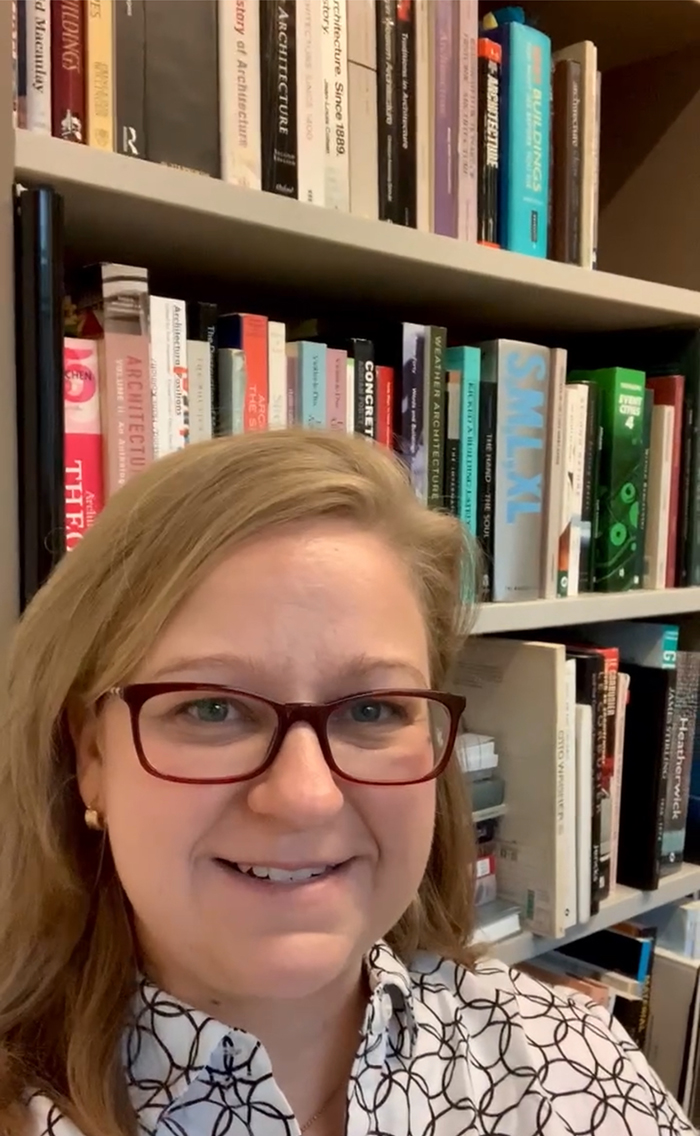
Challenging Erasure: Collaborative Architectural Documentation and Historic Interpretation
February 13, 2025
12:00 p.m. Lunch; 12:30 p.m. talk starts
Location: TSRB 1st Floor Ballroom, 85 Fifth St NW, Atlanta, GA 30308
Speaker: Danielle S. Willkens, Associate Professor, School of Architecture, Georgia Institute of Technology
Abstract: How can we study and reveal the hidden, or repressed, histories within the built environment that illuminate a more complete and accurate record of our shared history? This talk will feature ongoing documentation, visualization, and historic interpretation work at modern civil rights sites in the southern U.S., and how expanded narratives can pave the way for a more resilient future and inclusive future.
Short bio: Danielle S. Willkens is an Associate Professor in Georgia Institute of Technology’s School of Architecture and the Initiative Lead for Resilient & Informed Communities at the Institute for People and Technology (IPaT). Her research has been supported by the American Institute of Architects’ (AIA) Center for Architecture, Sir John Soane’s Museum Foundation, the International Center for Jefferson Studies, the American Philosophical Society Franklin Research Grant, the Society of Architectural Historians and the National Center for Preservation Training and Technology. She holds an PhD from the Bartlett School of Architecture, a M.Phil from the University of Cambridge, and a M.Arch and BS from the University of Virginia.
"
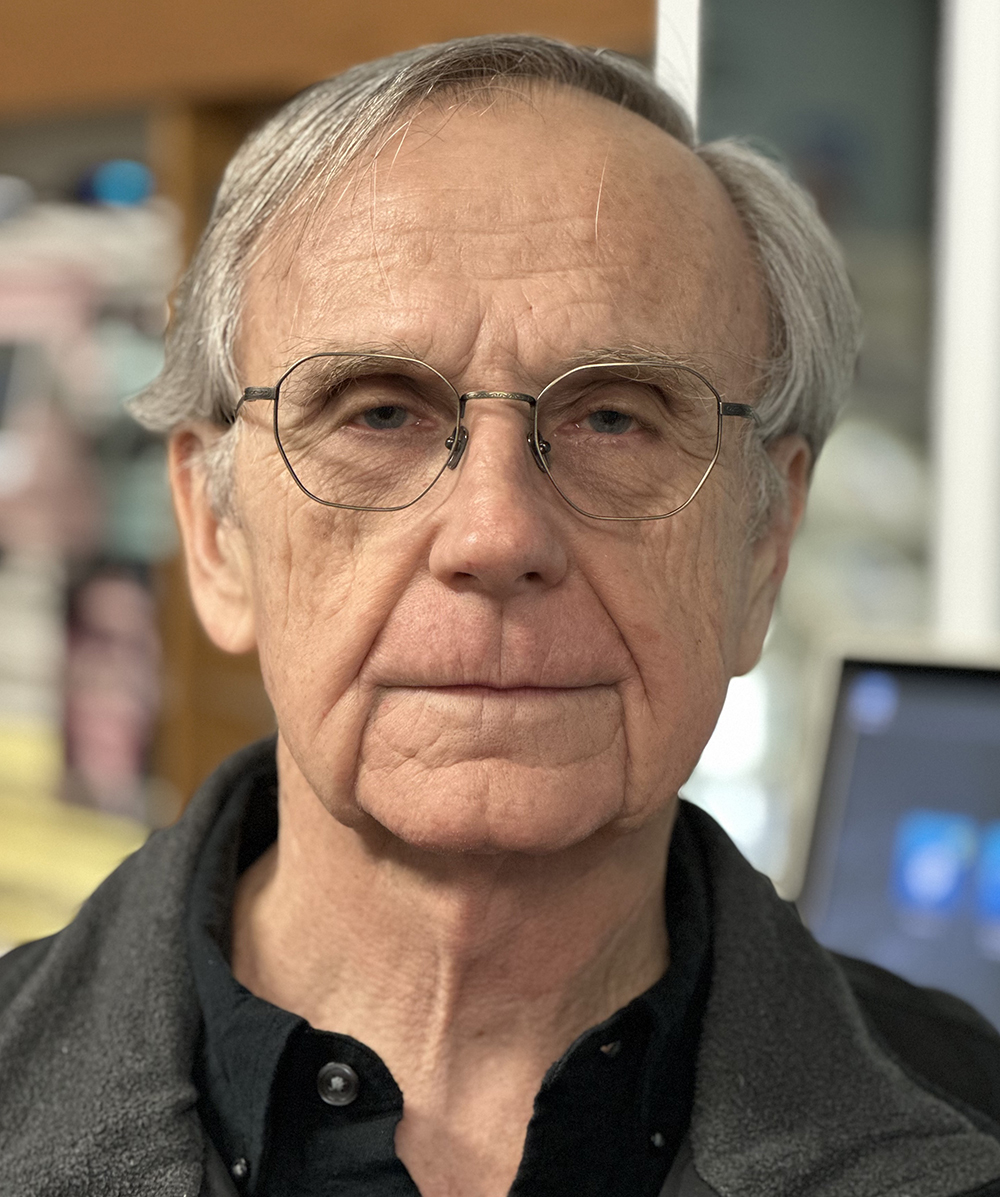
Adaptive User Interfaces for Personalized Services
February 6, 2025
12:00 p.m. Lunch; 12:30 p.m. talk starts
Location: TSRB 1st Floor Ballroom, 85 Fifth St NW, Atlanta, GA 30308
Speaker: Pat Langley, Ph.D., Principal Research Scientist in the Information and Communications Laboratory at Georgia Tech Research Institute and as Director of the Institute for the Study of Learning and Expertise.
Abstract – The Internet has made available massive amounts of information and given users more choices than ever before, but all too often the result is more confusion than satisfaction. Intelligent assistants can help people filter relevant information and guide their choices, but users have different goals and distinctive tastes. In this talk, I report work adaptive user interfaces -- interactive systems that automatically personalize their content to individual users. These incorporate technology and principles from machine learning, intelligent agents, and human-computer interaction to improve the user's experience. I describe a number of prototype systems, including a personalized navigation aide, an adaptive news reader, and a conversational destination advisor. Along the way, I consider design decisions about the problem formulation, the representation of user profiles, the unobtrusive collection of user feedback, and the effective utilization of inferred profiles. I claim that progress on personalized services depends not on development of new algorithms, but rather on the integration of existing methods in novel ways.
This talk describes joint work with Nicolas Fiechter, Melinda Gervasio, Wayne Iba, Mehmet Goker, Seth Rogers, and Cynthia Thompson.
Bio – Pat Langley, Ph.D., serves as Principal Research Scientist in the Information and Communications Laboratory at Georgia Tech Research Institute and as Director of the Institute for the Study of Learning and Expertise. He has contributed to artificial intelligence and cognitive science for more than 40 years, having published over 300 papers and five books on these topics. Dr. Langley developed some of the first computational approaches to scientific knowledge discovery, and he was an early champion of both experimental studies of machine learning and its application to real-world problems. He is the founding editor of two journals, Machine Learning in 1986 and Advances in Cognitive Systems in 2012, and he is a Fellow of both AAAI and the Cognitive Science Society. Dr. Langley's current research focuses on architectures for embodied intelligent agents and induction of explanatory scientific models.
"
Autographic Design – the Matter of Data in a Self-Inscribing World
January 30, 2025
12:00 p.m. Lunch; 12:30 p.m. talk starts
Location: TSRB 1st Floor Ballroom, 85 Fifth St NW, Atlanta, GA 30308
Speaker: Dietmar Offenhuber is Associate Professor and Chair of Art+Design at Northeastern University
Abstract – the Matter of Data in a Self-Inscribing World – Data analysis and visualization are crucial tools in today’s society, and digital representations have steadily become the default for presenting claims about the state of the world. Yet, more and more often, we find that citizen scientists, environmental activists, and amateur forensic investigators are using analog methods to present evidence of pollution, climate change, and the spread of disinformation.
In my talk, I will discuss Autographic design as a non-representational framework of visualization based on the notion that data are material entities rather than abstract representations. Focusing on the materiality of data generation, the goal of autographic design is to make the process of data generation legible and accountable. In the institutional politics of whose data is accepted as trustworthy, autographic design reverses representational rules – instead of adopting experts’ methods and representations, it challenges these representations through sensory displays that emphasize traces, imprints, and self-inscriptions.
Bio – Dietmar Offenhuber is Associate Professor and Chair of Art+Design at Northeastern University in the areas of information design and urban affairs. He holds an MS and a PhD in from MIT (Medialab & Urban Planning). His research focuses on the relationship between data and design in the social context. Dietmar is the author of the award-winning monograph “Waste is Information” (MIT Press) and has published books on urban data and accountability technologies. His new book “Autographic Design – the Matter of Data in a Self-inscribing World” examines material visualization practices and the production of evidence.
"
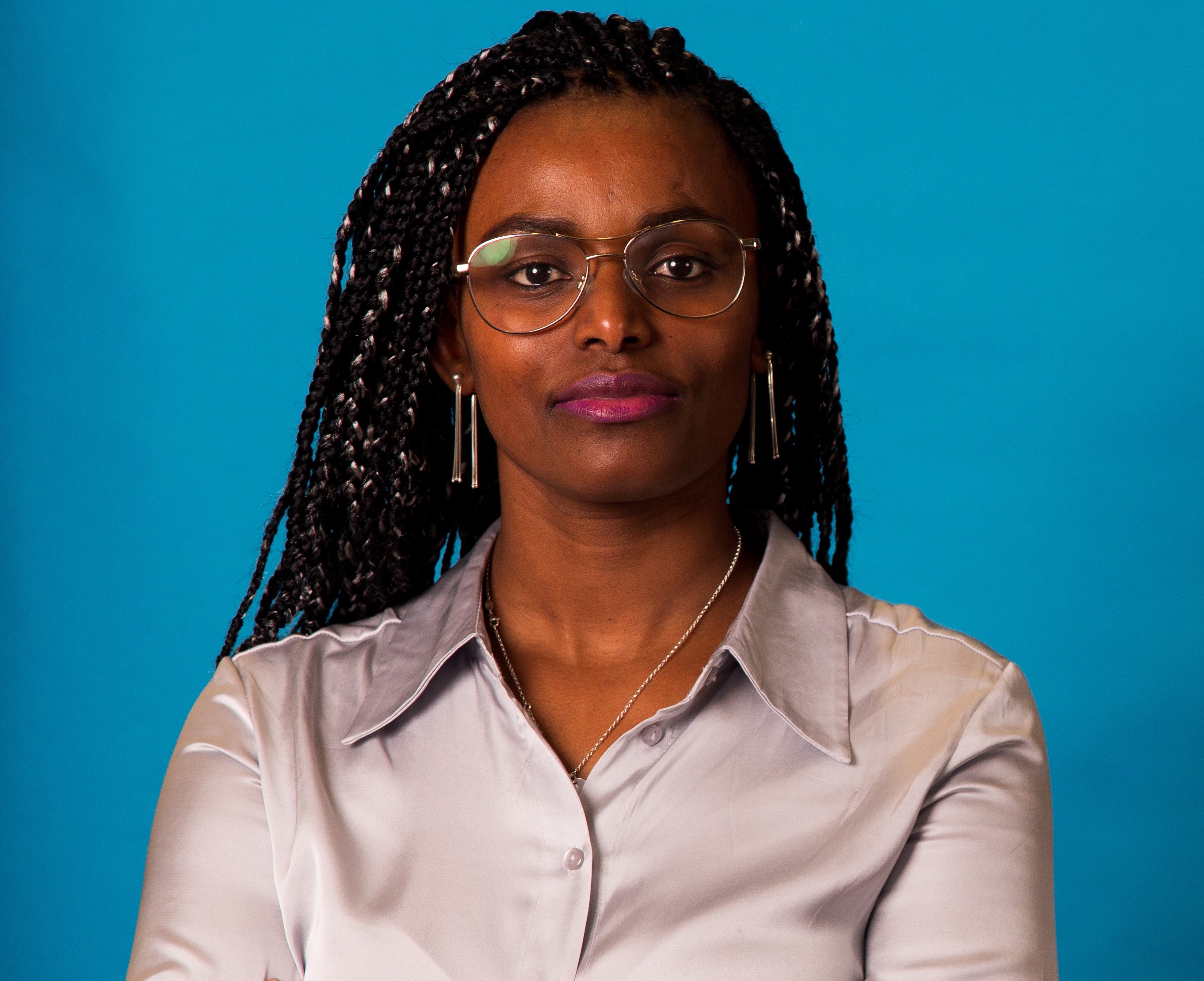
Generative AI: Sparks of AGI or Glorified Copy-paste Machines?
January 23, 2025
12:00 p.m. Lunch; 12:30 p.m. talk starts
Location: TSRB 1st Floor Ballroom, 85 Fifth St NW, Atlanta, GA 30308
Speaker: Abeba Birhane, Assistant Professor, School of Computer Science and Statistics, Trinity College, Dublin, Ireland
Sponsored by the AIAI Network
Abstract: The past number of years have seen peak excitement, enthusiasm, and inflated optimism around AI, mostly predicated upon yet to materialise “benefits”, “potentials”, and “promises”. Actual deployed systems however continue to fail to live up to their promises, leading to numerous downstream impacts. In this talk, we survey current state-of-the-art AI systems and their downstream impact on society and conclude with some recommendations geared towards reliable and equitable AI systems as well as mechanisms for accountability.
Bio: Abeba Birhane founded and leads the TCD AI Accountability Lab (AIAL). Birhane received her PhD in 2022 and is currently a Research Fellow at the School of Computer Science and Statistics in Trinity College Dublin. Her research focuses on AI accountability, with a particular focus on audits of AI models and training datasets – work for which she was featured in Wired UK and TIME on the TIME100 Most Influential People in AI list in 2023. Dr. Birhane also served on the United Nations Secretary-General’s AI Advisory Body and currently serves at the AI Advisory Council in Ireland.
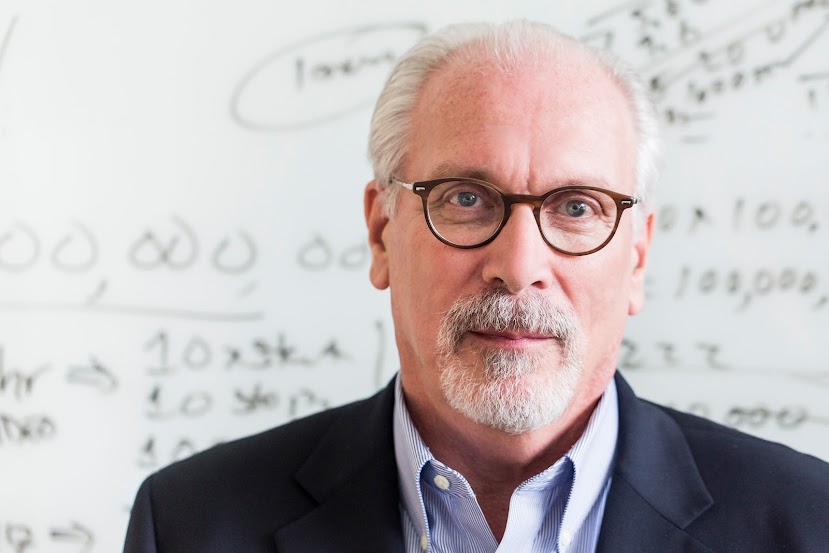
Roots of Distrust: Modern Technology and the Impact of a 19th Century Voter Suppression Plan
January 16, 2025
12:00 p.m. Lunch; 12:30 p.m. talk starts
Location: TSRB 1st Floor Ballroom, 85 Fifth St NW, Atlanta, GA 30308
Speaker: Richard DeMillo, Professor and Charlotte B. and Roger C. Warren Chair in Computing, School of Cybersecurity and Privacy
Abstract: Much effort is devoted these days to understanding the root cause of distrust in election systems. Little effort is devoted to understanding the relationship between election technology and the historically significant distrust in populations whose rights have been denied. In this talk, I will first draw connections between the modern language used to justify the computerization of elections and the language of the Post-Reconstruction revision of the constitution of the state of Mississippi. I will use this analogy to bolster the argument that in modern times building "trust" in elections is counter-productive and that energy is better spent on developing confidence-building evidence-based methods for reaching agreement on election outcomes.
Bio: Richard DeMillo holds the Charlotte B. and Roger C. Warren Chair in Computing at the Georgia Institute of Technology. With cybersecurity threats on the rise, he founded and led Georgia Tech’s School of Cybersecurity and Privacy, the first-of-a-kind at a top research university, to close the national skills gap in cybersecurity. He was formerly the John P. Imlay Dean of Georgia Tech's College of Computing and Director of the Georgia Tech Information Security Center. He has held senior leadership positions in industry, government, and academia. He was Hewlett-Packard/s first Chief Technology Officer. His academic research includes over 100 articles, books, and patents in computer science and cybersecurity. He works at the intersection of fundamental problems in digital technology and the public impact of those technologies. His 1979 paper “Social Processes and Proofs of Theorems and Programs “has been reprinted dozens of times and was recently cited as one of the 50 most influential papers in computer science.
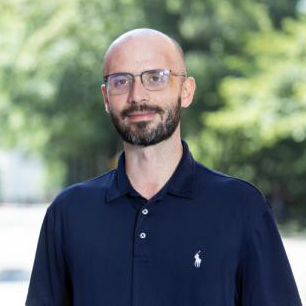
Youth Advocacy for Resilience to Disasters: Empowering Youth to Be Advocates for Change
January 9, 2025
12:00 p.m. Lunch; 12:30 p.m. talk starts
Location: TSRB 1st Floor Ballroom, 85 Fifth St NW, Atlanta, GA 30308
Speaker: Allen Hyde, Assistant Professor, School of History & Sociology in the Ivan Allen College of Liberal Arts, Georgia Tech
Abstract: Frontline coastal communities are under increased threat from intersecting disasters. Extreme weather events, such as hurricanes, heatwaves, heavy precipitation, and flooding are projected to rise in their incidence and overall severity over the coming decades due to climate change. Meanwhile, industries operating in ports are polluting the air and soil of nearby neighborhoods, and the negative health effects caused by industrial pollution can be exacerbated or redistributed by hurricanes and flooding. Through Youth Advocacy for Resilience to Disasters (YARDs), we seek to engage youth living in frontline communities in disaster resilience planning through mapmaking and advocacy through a cross-curricular STEAM program designed for middle school students. We designed a youth program because families are often busy with other activities, care work, and their employment that they can be difficult to engage; however, youth can be a gateway to access these busy families. Research has shown that engaging youth in advocacy can enhance disaster resilience. From 2021 to 2023, we implemented a 14-session curriculum that educates and empowers middle-school-aged participants to advocate for infrastructural improvements that can benefit themselves and their neighbors by learning about disaster resilience from the perspective of environmental justice and equity. Students then learn about the importance of civics and understanding power and representation in their community. The next module focuses on MapSpot, virtual mapmaking, and data to understand the assets and vulnerabilities in their communities related to disasters and climate. They then learn about green and gray infrastructure solutions to disasters. Finally, they develop an action plan and present their plan to local leaders (political and civic, including their families) that they have identified in their community to advocate for change.
This curriculum has been piloted as an after-school program at a Title I school in Savannah and Chatham County's Public School System in the Fall of 2022 and twice as a summer camp in the summers of 2022 and 2023 at the Georgia Tech Savannah campus. Most recently, we ran the program as a 2-day camp in Cape Town, South Africa. This transdisciplinary and cross-curricular program includes elements and team members from diverse disciplines including sociology, urban planning, civil engineering, and digital media studies, as well as civic partners. We also refined and introduced a creative, accessible mapmaking tool, called Map Spot, to engage youth in data visualization and mapmaking to help make claims about disasters in their communities.
Bio: Allen Hyde is an Associate Professor in the School of History and Sociology at the Georgia Institute of Technology. He is a quantitative scholar whose main research areas are stratification and inequality, urban sociology, work and occupations, climate and disaster resilience, and immigration. He is currently researching the effects of race/ethnicity and immigration status on homeownership, social and demographic change in Clarkston, GA (known as the most diverse square mile in America), and a Principal Investigator for the Youth Advocacy for Resilience to Disasters Program research project funded by the National Science Foundation's Civic Innovation Challenge. He has also been a Principal Investigator for a National Science Foundation Innovation Corps (I-Corps) grant. He received his Ph.D. from the Department of Sociology at the University of Connecticut.




